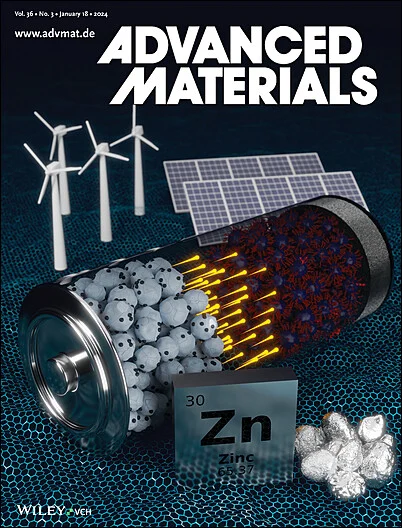Skin Relevant Biomaterials from Wound Healing, Medical Aesthetics, Flexible Electronics to Artificial Intelligence and Beyond.
IF 26.8
1区 材料科学
Q1 CHEMISTRY, MULTIDISCIPLINARY
引用次数: 0
Abstract
Recent advancements in biomaterials have profoundly transformed the fields of dermatology and tissue engineering, etc., offering innovative solutions that markedly improve skin treatment outcomes. This review provides a comprehensive overview of the latest developments in natural, synthetic, and composite biomaterials tailored for skin treatments and skin-related medical devices, including wound healing, tissue engineering, drug delivery, dermatological therapies, medical aesthetics, e-skin, and skin-related surgery-assistant devices. The incorporation of artificial intelligence (AI) into biomaterial design has facilitated the development of adaptive and predictive systems capable of responding dynamically to the skin's physiological needs. Moreover, an in-depth understanding of the interactions between biomaterials and cells, as well as the activation of biological pathways and regulation of cellular processes is pivotal for enhancing skin health and function. Looking forward, the main efforts toward future in this field are suggested as follows: 1) Development of novel materials remains central; 2) Responsive biomaterials enable precise therapy; 3) Integration with cell therapy is pivotal in regenerative medicine; 4) In-depth investigations into material-driven biological mechanisms are critical for innovative design of skin-related materials; 5) Interdisciplinary collaboration is vital for the rapid evolution of biomaterials; 6) Enhanced applications of AI is driving the development of adaptive and predictive biomaterials.皮肤相关的生物材料,从伤口愈合,医学美学,柔性电子到人工智能等。
生物材料的最新进展深刻地改变了皮肤病学和组织工程等领域,提供了显着改善皮肤治疗效果的创新解决方案。本文综述了用于皮肤治疗和皮肤相关医疗器械的天然、合成和复合生物材料的最新发展,包括伤口愈合、组织工程、药物输送、皮肤病学治疗、医学美学、电子皮肤和皮肤相关手术辅助设备。人工智能(AI)与生物材料设计的结合促进了适应性和预测性系统的发展,这些系统能够动态响应皮肤的生理需求。此外,深入了解生物材料与细胞之间的相互作用,以及生物途径的激活和细胞过程的调节对于增强皮肤健康和功能至关重要。展望未来,该领域的主要工作如下:1)新材料的开发仍然是核心;2)反应性生物材料实现精准治疗;3)结合细胞疗法是再生医学的关键;4)深入研究材料驱动的生物机制对皮肤相关材料的创新设计至关重要;5)跨学科合作对生物材料的快速发展至关重要;6)人工智能应用的增强推动了适应性和预测性生物材料的发展。
本文章由计算机程序翻译,如有差异,请以英文原文为准。
求助全文
约1分钟内获得全文
求助全文
来源期刊

Advanced Materials
工程技术-材料科学:综合
CiteScore
43.00
自引率
4.10%
发文量
2182
审稿时长
2 months
期刊介绍:
Advanced Materials, one of the world's most prestigious journals and the foundation of the Advanced portfolio, is the home of choice for best-in-class materials science for more than 30 years. Following this fast-growing and interdisciplinary field, we are considering and publishing the most important discoveries on any and all materials from materials scientists, chemists, physicists, engineers as well as health and life scientists and bringing you the latest results and trends in modern materials-related research every week.
 求助内容:
求助内容: 应助结果提醒方式:
应助结果提醒方式:


